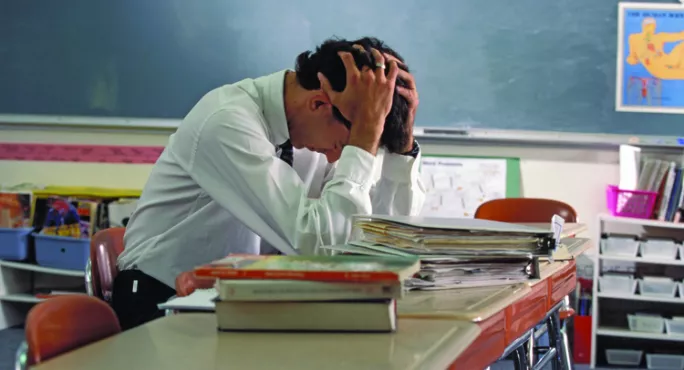Teachers drop out of the profession because they find the workload is “worse than expected”, according to a new study.
Research from academics at UCL’s Institute of Education found that while most teachers were aware of the challenges of workload before entering the profession, they thought they could cope and only later discovered that “the reality was different”.
Teachers also felt that it was the nature of workload that made it so unsustainable - particularly its link to accountability - rather than the sheer quantity.
Quick read: ‘Pupils should tell parents about behaviour to save workload’
Analysis: Why do teachers work more overtime than anyone else?
Read: Job stress higher for teachers than other professions
The research involved a survey of about 1,200 current and former teachers on the IOE’s initial teacher education alumni database.
Forty to 50 per cent of the respondents had left or were considering leaving within 10 years of beginning teacher training, with the researchers commenting: “It would certainly seem that teaching is not a career for life”.
The survey results “spoke to a discourse of disappointment” among teachers, the researchers said.
“Our main findings were that teachers entered the profession because they wanted to work with young people and ‘make a difference’, but once they started in teaching, other factors, the reality of daily life as a teacher, dulled their enthusiasm.”
Asked what they thought was going to be the most challenging thing about going into teaching, pupil behaviour was the most predicted challenge, followed by fears over workload.
However, while “behaviour faded as a significant challenge for those still in teaching”, the concerns over workload did not.
“It is interesting to wonder why this well-publicised issue was known about and recognised but did not stop people wanting to teach, yet in the end was the main reason why people left,” the researchers write.
One of the surveyed teachers commented: “I had also seen my colleagues struggle with work-life balance/workload and knew it was a given for the job, but not the full extent.”
Another teacher said: “I thought it would be a challenge, but didn’t realise just how challenging that was going to be”.
The top reasons given for leaving the profession by those who had already left were to “improve work-life balance” (listed by 75 per cent), “workload” (71 per cent) and a “target-driven culture” (57 per cent).
Those teachers still in the job but who indicated that they may leave in the future cited workload (83 per cent), improving work-life balance (76 per cent) and “not feeling valued” (58 per cent).
“As can be seen, the reasons for actually leaving and those predicted are broadly similar, with workload and work-life balance being the most frequent responses,” the research paper says.
“This is despite an awareness of workload before entering the profession...Our teachers knew about the workload and thought they could cope, but the reality was different.”
The surveyed teachers described workload as “incredible”, “unmanageable and unsustainable”, “insane”, “unrealistic” and “extreme”, with some claiming to work 11-hour days and 60-70 hours per week.
“Our data suggest it is not just the issue of the workload, and the stressful environment but the nature of the work, the accountability agenda that deprived teachers of the creativity and variety for which some had joined the profession,” the researchers write.
They argue that “part of the problem lies within the culture of teaching, the constant scrutiny, the need to perform and hyper-critical management” and warn that reducing the quantity of workload alone “will not address these cultural issues”.




